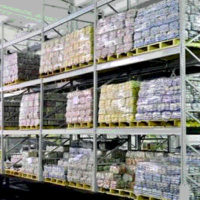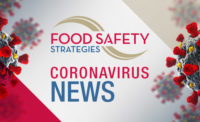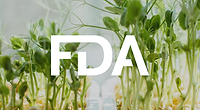Importing Challenges for Dietary Supplement Firms under FSMA and FSVP

When the 1994 Dietary Supplement Health and Education Act (DSHEA) created a legal class of foods, called “dietary supplements,” it carved out many unique regulatory requirements and exemptions. Since the passing of the Food Safety Modernization Act (FSMA) in 2011, dietary supplement firms have the added confusing task of identifying which FSMA rules apply, and what impact, if any, this has to their current dietary supplement quality system designed to meet 21 CFR 111, Current Good Manufacturing Practice (CGMP) in Manufacturing, Packaging, Labeling, or Holding Operations for Dietary Supplements, as well as all other applicable statutory requirements. This can be even more challenging when a firm imports dietary supplements or ingredients.
There are seven major rules that have been issued by the FDA to support the enforcement of FSMA:
• CGMP, Hazard Analysis, and Risk-Based Preventative Controls for Human and Animal Food (HARPC)
• Foreign Supplier Verification Program (FSVP) rule
• Intentional Adulteration rule
• Product Safety rule (fruits and vegetables)
• Sanitary Transportation rule
• Standard for the Growing, Harvesting, Packing, and Holding of Produce for Human Consumption
• Voluntary Accredited Third-Party Certification Program
 The CGMP and HARPC requirements for foods are dictated in 21 C.F.R. 117, but firms that are in compliance with dietary supplement CGMPs in 21 C.F.R. 111 are exempt from Subparts C – HARPC and Subpart G – Supply Chain Program of 21 C.F.R. 117. In addition, since both 21 C.F.R. 111 and 21 C.F.R. 117 define the CGMP requirements for the sourcing, manufacturing, packaging, holding, and distribution of foods, a dietary supplement firm that is in compliance with 21 C.F.R. 111 will already have a quality system in place to address the 21 C.F.R. 117 requirements as well. It is also very important to note that 21 C.F.R. 111 has very rigorous and specific quality and testing requirements for raw materials, in-process materials, packaging components and labels, and finished products; detailed requirements for manufacturing, packaging, and labeling operations; and extensive responsibilities that must be conducted by a quality unit. Table 1 depicts a comparison between the various subparts of 21 C.F.R. 111 with the requirements of 21 C.F.R. 117.
The CGMP and HARPC requirements for foods are dictated in 21 C.F.R. 117, but firms that are in compliance with dietary supplement CGMPs in 21 C.F.R. 111 are exempt from Subparts C – HARPC and Subpart G – Supply Chain Program of 21 C.F.R. 117. In addition, since both 21 C.F.R. 111 and 21 C.F.R. 117 define the CGMP requirements for the sourcing, manufacturing, packaging, holding, and distribution of foods, a dietary supplement firm that is in compliance with 21 C.F.R. 111 will already have a quality system in place to address the 21 C.F.R. 117 requirements as well. It is also very important to note that 21 C.F.R. 111 has very rigorous and specific quality and testing requirements for raw materials, in-process materials, packaging components and labels, and finished products; detailed requirements for manufacturing, packaging, and labeling operations; and extensive responsibilities that must be conducted by a quality unit. Table 1 depicts a comparison between the various subparts of 21 C.F.R. 111 with the requirements of 21 C.F.R. 117.
 Whenever a dietary supplement product or ingredient (raw material) is imported from a foreign supplier, the FSMA FSVP rule applies. This is NOT covered under 21 C.F.R. 111. Identifying which materials and products are imported, who is the responsible party and actual importer of record, and what CGMP regulation is in place (21 C.F.R. 111 or 21 C.F.R. 117) is critical for compliance with the FSVP rule because the requirements differ depending on the situation. The U.S. Food and Drug Administration (FDA) issued a Guidance for Industry, Small Entity Compliance Guide – Foreign Supplier Verification Programs for Importers of Food for Humans and Animals: What You Need to Know About the FDA Regulation, in January 2018 to help firms understand the various requirements. An adaptation of the table in the guidance document is provided here as Table 2 with an explanation following.
Whenever a dietary supplement product or ingredient (raw material) is imported from a foreign supplier, the FSMA FSVP rule applies. This is NOT covered under 21 C.F.R. 111. Identifying which materials and products are imported, who is the responsible party and actual importer of record, and what CGMP regulation is in place (21 C.F.R. 111 or 21 C.F.R. 117) is critical for compliance with the FSVP rule because the requirements differ depending on the situation. The U.S. Food and Drug Administration (FDA) issued a Guidance for Industry, Small Entity Compliance Guide – Foreign Supplier Verification Programs for Importers of Food for Humans and Animals: What You Need to Know About the FDA Regulation, in January 2018 to help firms understand the various requirements. An adaptation of the table in the guidance document is provided here as Table 2 with an explanation following.
In all dietary supplement product and ingredient import situations, the importer at entry must be identified per 21 C.F.R. 1.509 and a “Qualified Individual” must be established and used in accordance to 21 C.F.R. 1.503. The extent of the other applicable FSVP requirements then depends on the CGMP regulatory quality system at the actual importer. For direct importers that adhere to a dietary supplement 21 C.F.R. 111 CGMP quality system, there will already be specifications for all materials and products, and testing is required to demonstrate that those specifications have been met. Therefore, no additional FSVP requirements apply. Direct importers that do not adhere to 21 C.F.R. 111 themselves, but for whom their customer does have a dietary supplement 21 C.F.R. 111 CGMP quality system must annually obtain written assurance from that customer that they are in compliance with those requirements; and the importer themselves must adhere to the FSVP requirements for recordkeeping as defined in 21 C.F.R. 1.510.
When dietary supplements are being imported but neither the importer nor the importer’s customer is required to have a 21 C.F.R. 111 CGMP regulatory quality system, then adherence to a 21 C.F.R. 1.511(c) modified FSVP program is necessary. This program does not include the standard FSMA FSVP requirements to establish a written food safety and risk assessment program that includes gathering information from the foreign manufacturer in order to identify potential food safety hazards and establish the food safety risk of these hazards. A foreign supplier evaluation is, however, required per 21 C.F.R. 1.505 and a system to manage corrective actions is needed as dictated in 21 C.F.R. 1.508. All of this information is assembled by the “Qualified Individual” and stored on-site at the FSVP “Importer” office which is identified as required in 21 C.F.R. 1.509.
Now 25 years after the passing of DSHEA, the dietary supplement industry still struggles with compliance to CGMPs. It should come as no surprise then that an understanding of FSMA’s applicability to the dietary supplement industry, less than 10 years after its passage is another confusing and challenging regulatory issue for the dietary supplement industry. Soliciting the guidance of a qualified consultant who has detailed experience in both dietary supplement and FSMA regulations and how they must be adhered to in order to achieve complete FDA compliance is paramount and a priority. Failure to do so can create uncertainty leading to serious compliance issues and trigger FDA enforcement actions.
Tara Lin Couch, Ph.D., is the senior director of Dietary Supplement and Tobacco Services at EAS and an analytical/organic chemist with exceptional analytical abilities and over 25 years of diverse laboratory and regulatory experience in academic, field, contract, and manufacturing environments. She has assisted numerous companies with the development, improvement, and implementation of strong quality systems that are scientifically sound, efficient, practical, and compliant with all FDA regulations.
Allen Sayler is the senior director for Food Consulting Services at EAS with expertise in the areas of food processing, particularly in the area of dairy processing, infant formula, bakery products, food additives, botanical products, and food packaging. He has spent more than 30 years as a food processing and regulatory expert, with half of the time serving the industry and the other half as a state and federal government employee, including vice president of regulatory affairs and international standards at the International Dairy Foods Association.
Looking for a reprint of this article?
From high-res PDFs to custom plaques, order your copy today!






